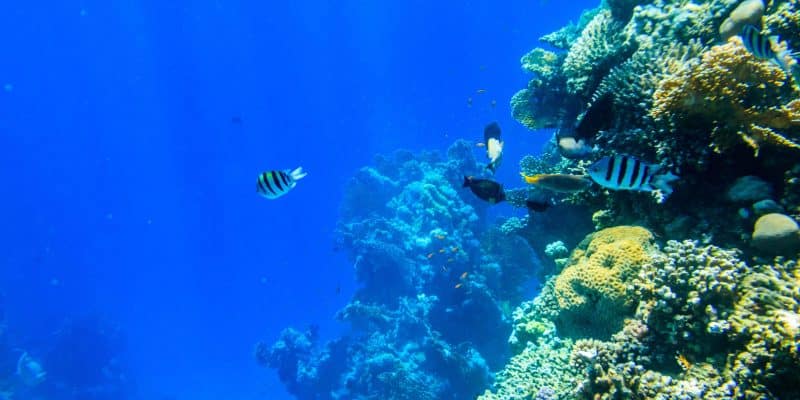Ras Mohammed Marine Nature Reserve, Egypt's oldest national park, has just received the Green List certificate from the International Union for Conservation of Nature (IUCN). The award recognises Egypt's efforts to protect its natural ecosystems, including coral reefs, mangroves and seagrass beds in the Red Sea, as it hosts the 27th United Nations Climate Change Conference (COP27) from 6 to 18 November 2022.
Ras Mohammed Marine Nature Reserve, established in 1983 as Egypt’s first national park, has just been awarded a Green List certificate by the International Union for Conservation of Nature (IUCN). The announcement was made by the Egyptian authorities on the sidelines of the 27th United Nations Climate Change Conference (COP27), which they are hosting until 18 November 2022.
Spanning 850 square kilometres at the southern tip of the Sinai Peninsula in eastern Egypt, Ras Mohammed is one of the world’s top 10 sites recognised for the effective management of its marine ecosystems, and the first marine protected area in Africa and the Middle East to be included in the IUCN Green List.
The reward for 10 years of conservation
To achieve this level of conservation recognition, the Egyptian Ministry of Environment, through the National Conservation Sector (NCS), has partnered with the Global Environment Facility (GEF) and the United Nations Development Programme (UNDP). The three partners worked together from 2010 to 2020 on a project targeting protected area financing and management systems.
This included supporting the NCS’s efforts to minimise the impacts of tourism on coral reefs around Ras Mohammed, including near diving sites. The project also included a study to document the status and threats to the Red Sea’s marine resources, and the initiation of a monitoring programme focusing on coral cover in the South Sinai region.
Coral reefs flourish
In Ras Mohammed, coral reef monitoring has revealed up to 90% live coral cover in some areas, with an average of over 65%. This is significantly higher than areas outside the reserve, which has around 20-30% live coral cover.
Coral reefs are among the most biologically diverse and valuable ecosystems on the planet. According to the IUCN, about 25% of the ocean’s fish depend on healthy coral reefs and about one billion people worldwide benefit directly or indirectly from the ecosystem services provided by coral reefs.
Read also-MEDITERRANEAN: an initiative to improve the management of marine protected areas
Established in 2014 at the World Parks Forum, the IUCN Green List is a global campaign for successful nature conservation. At the heart of this campaign is the Green List Sustainability Standard, which is a global benchmark for how to meet the environmental challenges of the 21st century. As of September 2021, it contains only 59 sites worldwide.
Boris Ngounou







